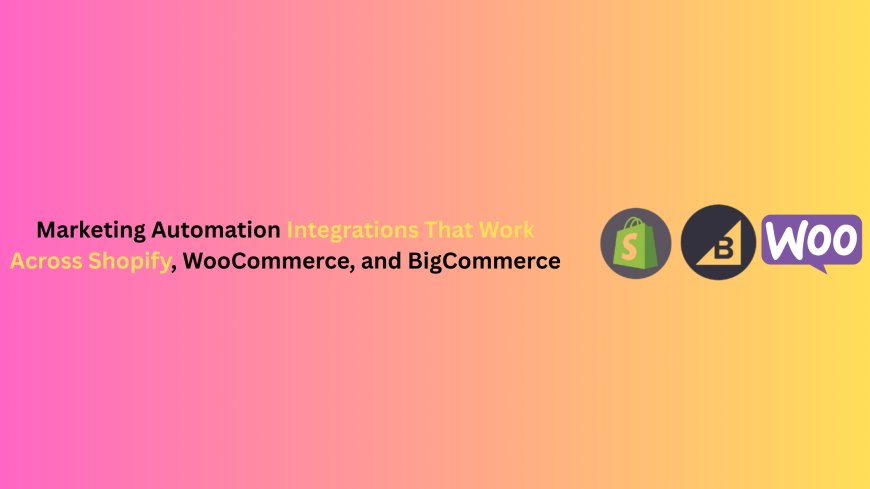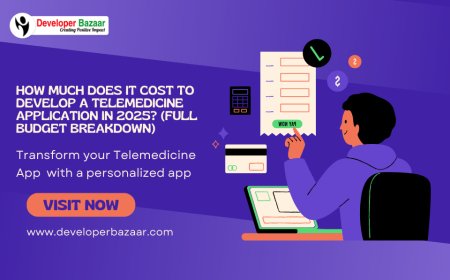Marketing automation is rapidly becoming one of the most vital growth tools of eCommerce brands, especially those that want to scale their sales in an efficient way. Nowadays, businesses cannot do without organised automation to communicate in a personalised manner, regain abandoned carts, nurture leads, run targeted promotions, and understand customer behaviour without constantly increasing marketing efforts.
The challenge for online stores running on Shopify, WooCommerce, or BigCommerce is not to find tools but to select integrations that enable all three platforms to work together seamlessly. Many businesses are migrating, expanding to multiple storefronts, or running separate B2B/B2C stores, so cross-platform automation has become more important than ever.
We at Designpluz assist brands in simplifying marketing automation across these platforms, thus ensuring the smooth running of communication flows, integration of data handling, and upholding of customer experiences.
Why Cross-Platform Automation Matters
Each of these e-commerce platforms has its advantages, but most marketing teams use the same automation tools for all of them. The lack of a unified integration is the reason for inconsistent customer data, broken workflows, and inefficiencies.
If done correctly, marketing automation will result in:
- An integrated customer journey
- Behavioural targeting
- Automated sales funnels
- Real-time product recommendations
- Accurate customer segmentation across stores
As the brands increase in size, it becomes crucial to be able to keep up impeccable marketing workflows across multiple platforms if they want to scale their revenue.
Platform-Specific Capabilities and Integration Opportunities
Shopify Marketing Automation Essentials
Shopify is known for its streamlined app ecosystem, native marketing automation tools, and deep integrations with leading automation platforms. A skilled shopify website developer can configure advanced triggers for abandoned cart flows, back-in-stock alerts, product recommendations, and loyalty automation.
Usually, Shopify Flow, Klaviyo, and Omnisend are the main components of these automations supporting the sequences of greeting, multi-step drip campaigns, and retention workflows. Any business growing long-term would find Shopify as one of the most automation-friendly environments.
WooCommerce Marketing Automation Essentials
WooCommerce offers extensive customisation through WordPress, therefore, it is a good choice for businesses that require personalised or highly customised automation workflows.
With tools such as AutomateWoo, MailPoet, Drip, and HubSpot, WooCommerce stores can automate anything, from follow-up sequences to subscription renewals. Expert WooCommerce website developers can integrate CRM systems, build custom triggers, enhance API connections, and link WordPress plugins to marketing tools for advanced behaviour-based targeting.
WooCommerce provides more control over data, which is just right for complicated segmentation and personalised automation.
BigCommerce Marketing Automation Essentials
BigCommerce was designed to be scalable, and its natively automation-friendly architecture is what makes it a perfect multi-store setup or mid-to-enterprise business choice.
With powerful integrations for Klaviyo, ActiveCampaign, Mailchimp, and HubSpot, a BigCommerce expert team can set up advanced customer segmentation, automated cross-sell campaigns, and personalised recommendations.
The headless structure of BigCommerce additionally allows for more robust API-based automation that is just right for businesses that operate across multiple channels and need to have consistent messaging.
Core Marketing Automation Workflows That Work Across All Platforms
1. Abandoned Cart Recovery (Bullet Section)
- Trigger emails and SMS in response to cart abandonment time.
- Include dynamic product blocks for personalised recovery messages.
- Implement A/B-tested subject lines and urgency-driven CTAs.
- Integrate with CRM to monitor cart value, items, and customer history.
2. Automated Customer Segmentation (Bullet Section)
- Segment by purchase behaviour, frequency, and AOV.
- Group users by browsing patterns.
- Identify high-value buyers for VIP campaigns.
- Define lifecycle stages (new, active, at-risk, lost).
API-Based Automations and CRM Integrations
The ones who run multiple stores or have multi-channel operations are the businesses that need to have consistent customer data. API-based integrations are a perfect solution that helps them to connect customer activity from Shopify, WooCommerce, and BigCommerce into one CRM.
Tools such as HubSpot, Zoho, and Salesforce integrate customer behaviour analysis, workflow automation, and messaging consistency across all platforms. Designpluz is the place where we frequently create tailor-made API synchronisation to ensure that data is consistent, duplication is minimised, and the accuracy of campaigns is increased.
Email Automation Techniques That Boost Conversions
Email automation is what keeps a brand's eCommerce strategy going and succeeding. Unified automation flows give businesses the opportunity to centrally run welcome series, post-purchase campaigns, VIP offers, and review-request sequences on any platform.
By employing dynamic content blocks, companies can tailor every email depending on which platform the customer had originally bought from. Thereby, the customers are made to feel that the communication is personalised without the need for more manual work.
SMS, WhatsApp, and Retargeting Automations
As a result of their high open rate and almost immediate engagement, SMS and WhatsApp automations have become quite indispensable. All three platforms are supported by tools like Twilio, Attentive, and Postscript, which allow businesses to automate:
- Flash sale notifications
- Delivery updates
- Abandoned cart reminders
- Loyalty program messages
In the same way, marketing automation integration with Google Ads and Facebook Pixel guarantees that retargeting is done consistently across all platforms, which is helpful in cutting down the lost revenue and improving the ROAS.
Why Multi-Platform Automation Matters for Australian Brands
Automation is not just about saving time for brands that are in Australia, primarily in competitive markets like Melbourne; it is what helps them stay ahead of their rivals.
Partnering with an agency like Designpluz offers eCommerce website development Melbourne, ensuring businesses get locally optimised workflows, compliance-ready SMS solutions, and region-specific behaviour insights.
How Designpluz Delivers End-to-End Automation Success
Designpluz specialises in integrating automation tools across Shopify, WooCommerce, and BigCommerce architectures. Our approach includes:
- Analysing customer journeys
- Setting up platform-specific triggers
- Connecting automation tools with CRM and ERP systems
- Building custom API-level workflows
- Ensuring consistent segmentation and communication
With a focus on performance, scalability, and data quality, we create automation systems that help brands increase sales, improve retention, and deliver exceptional customer experiences.










































